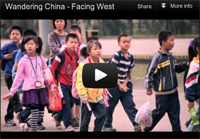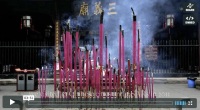An opinion piece from Singapore’s Temask Review reveals the real benefactors of Singapore’s trade arrangements with China, and India.
– – –
Who actually benefits from our India and China Trade Agreements?
Source – The Temasek Review, published June 23, 2010
People have always wondered why is it seems easier for foreigners to get work visas or permits nowadays. The possible reason could be the trade agreements our leaders so eagerly signed on, to increase Singapore’s Growth Domestic Product (which their bonuses and salary increments are tied to) without a thought for the negative social consequences.
The China-Singapore Free Trade Agreement
In reference to China-Singapore Free Trade Agreement (CSFTA) 23 October 2008:http://www.fta.gov.sg/fta_ceca.asp?hl=6
“The market access obligation means that a country cannot impose additional market access restrictions for these sectors, both quantitative and qualitative. For instance, restrictions cannot be imposed on: i) the number of service suppliers, service operations or persons employed in a particular service sector; ii) the value of services; or iii) the legal structure used.”
Due to the currency exchange, majority of Singaporeans will not head to China just to work in their service industry unless they are willing to uproot and live in China with expatriate terms
However, the people of China will definitely want to come to Singapore to work in our service industry to accumulate enough wealth to be able to live comfortably in China. Moreover, they don’t even have to be excessively qualified to work in the service industry in Singapore. Based on the agreement, restrictions cannot be imposed on the number of foreigners a company can employ even if they are not qualified.
Close to 70% of the world’s products are made or contracted to be made in China. So basically, we are already buying and importing made-in-China goods long before the agreement.
Singapore does not have anything that China would need in terms of goods and services. But China (as in India), do have low quality job opportunities. So, once again we have traded our job market in exchange for a country to open up their markets for us mostly for the banking industry and for investments for our SWF. Read the rest of this entry »
Filed under: Chinese Model, Economics, Influence, International Relations, Singapore, Soft Power, Temasek Review, Trade










The Sharing Circle